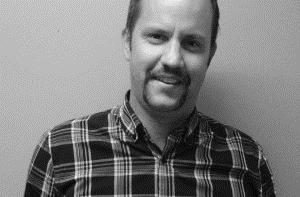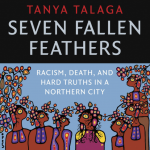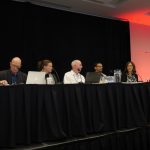Meet the Press: Daniel J. Rowe, The Eastern Door
By Nadine Tousignant for CNW
As Assistant Editor and Reporter at The Eastern Door, Daniel J. Rowe shares stories from the Kahnawake Mohawk community that deserve to be told. We asked Daniel about his work and what advice he has for PR professionals.
What is the most rewarding part of your work?
There is nothing more rewarding than telling someone’s story who has not had it told, and it deserves to be told. I’m speaking about the stories of people doing incredible things and doing them just because they are compelled to or want to. Be it an autistic wrestler, two mothers on opposite sides of a murder trial finding friendship, a young man who kicked an opiate addiction or a guy who just wants young people to have a place to play field lacrosse, they are very satisfying stories to tell. I’ve had to write about a half-dozen obituaries as well that gave me the chance (duty) to give the departed a final chapter. These were very difficult, emotional, but in the end rewarding, as family members and friends could heal through story.
How is social media useful to you?
First and foremost, social media is a useful tool for interviewing and research. Facebook has become as much an interview tool (particularly with teenagers and young adults) as the phone, as well as a tool for collecting photos, charting events and getting a sense of gossip in a small community. Twitter is handy particularly for sports and protests, and Instagram has been useful as a chronicle of events.
Social media is also extremely frustrating. I have been sent down numerous rabbit holes because of Facebook rumours and have witnessed a huge amount of online bullying and conspiracy theory building on Facebook. That, and conversations on walls are rarely that. They are opinion followed by opinion with very little debate or pause for consideration of another’s opinion.
What does a typical day look like?
My day starts with coffee and between 20-40 minutes of reading on the couch. By reading, I mean books. It has to be poetry, a classic or something as far from my life as a journalist as possible (i.e. no articles, features or non-fiction). I work as non-stop as possible interviewing, researching, writing and discussing stories with my colleagues and sources. I am meticulous in my time-management and try to complete two stories Monday, four Tuesday and at least six Wednesday. Every Thursday I have around 15 stories due before I begin proof reading, working on headlines and looking at the overall paper before it goes to print.
Then, it’s bourbon o’clock (in moderation of course).
What advice do you have for PR people?
Be honest. Listen to the questions, call back and don’t be afraid to give off-the-record comments, so a journalist can do his or her job and understand the situation as fully as possible. Don’t be scared of being portrayed in a bad light and show respect to those who criticize the organization you are working for.



